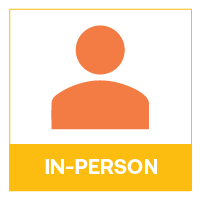Back
On-demand recording will be available 24hrs after the presentation.
Data Science and AI
Building the lab of the future
Accelerating the Drug Discovery Process with AI-driven Automation technologies: De novo design, Retrosynthesis and Scheduling
Monday, February 7, 2022
2:00 PM – 2:30 PM
Location: 204AB
.jpg)
Rohit Arora, PhD
Applications Scientist
Iktos Inc, MA, United States
The drug discovery and development process is notably complex and iterative, and is therefore time-consuming and expensive. This process follows the DMTA (Design-Make-Test-Analyze) iterative cycle to optimize the pharmacological and drug-like properties of potential drug candidates. Owing to the challenges of each component of this cycle, bringing a new drug from the discovery stage to market can take up to a decade and can cost well over a billion dollars. This process can be accelerated by addressing the underlying challenges, and streamlining the components of the DMTA cycle. At Iktos, we have developed a pipeline that incorporates robotic automation with an Artificial Intelligence (AI) based approach to make the drug discovery process significantly more efficient. Beneath the challenges of automating this process, i.e. automating drug design, synthesis, and testing, lies a critical organization and scheduling problem. It is crucial to use the available time and resources efficiently to minimize failure rates and improve scalability. Specifically, synthetic routes to molecules of interest have to be planned, organized, executed, and starting materials have to be available or ordered. Molecules should be made so as to not waste effort or resources. Biological tests have to be carried out efficiently and in a parallelized fashion, and prioritization decisions have to be made and modified as the cycle evolves. All the generated information needs to be used to better inform the next generation of molecule design. Finally, all of these processes need to occur through an orchestration of AI, robotics, automated reactors, and analytical instrumentation to reach the goal of a fully automatic drug discovery platform. We have developed a pipeline to accomplish this and it is comprised of our AI platforms for drug design (Makya), retrosynthesis (Spaya), and the automated task scheduling platform called Ilaka that can propose a detailed long-term schedule to maximize efficiency, and is also capable of scheduling robotics jobs. Using an active learning approach, the components of this pipeline work together seamlessly which allows for faster convergence towards optimal drug candidates by quickly recognizing any potential failure modes, thereby increasing the likelihood of success. For instance, if a high throughput molecular design and synthesis job encounters unexpected failures, Ilaka will appropriately reorganize the workload schedule to maximize the output. Overall, our pipeline can achieve (i) efficient chemical space exploration; (ii) drastic acceleration of the DMTA cycle thanks to short synthesis time; and (iii) dramatic cost savings in molecule synthesis by relying on robust and proven chemistry. This is the first automated AI-driven drug discovery platform of its kind. Innovations in AI and automation are impacting how we approach drug discovery and development, and we expect tools such as Makya, Spaya and Ilaka to become vital components of this changing landscape.


